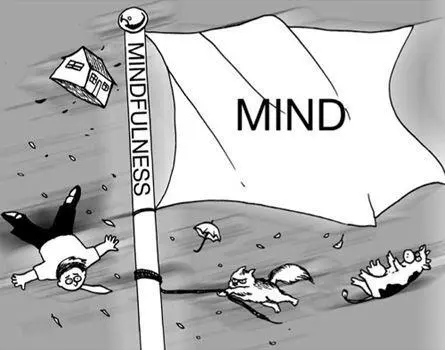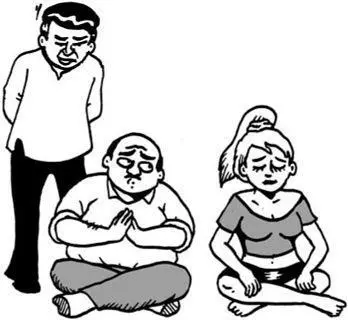Tan, Chade-Meng - Search Inside Yourself - The Unexpected Path to Achieving Success, Happiness (and World Peace)
Здесь есть возможность читать онлайн «Tan, Chade-Meng - Search Inside Yourself - The Unexpected Path to Achieving Success, Happiness (and World Peace)» — ознакомительный отрывок электронной книги совершенно бесплатно, а после прочтения отрывка купить полную версию. В некоторых случаях можно слушать аудио, скачать через торрент в формате fb2 и присутствует краткое содержание. Год выпуска: 2012, Издательство: Harper Collins, Inc., Жанр: Старинная литература, на английском языке. Описание произведения, (предисловие) а так же отзывы посетителей доступны на портале библиотеки ЛибКат.
- Название:Search Inside Yourself: The Unexpected Path to Achieving Success, Happiness (and World Peace)
- Автор:
- Издательство:Harper Collins, Inc.
- Жанр:
- Год:2012
- ISBN:нет данных
- Рейтинг книги:4 / 5. Голосов: 1
-
Избранное:Добавить в избранное
- Отзывы:
-
Ваша оценка:
- 80
- 1
- 2
- 3
- 4
- 5
Search Inside Yourself: The Unexpected Path to Achieving Success, Happiness (and World Peace): краткое содержание, описание и аннотация
Предлагаем к чтению аннотацию, описание, краткое содержание или предисловие (зависит от того, что написал сам автор книги «Search Inside Yourself: The Unexpected Path to Achieving Success, Happiness (and World Peace)»). Если вы не нашли необходимую информацию о книге — напишите в комментариях, мы постараемся отыскать её.
Search Inside Yourself: The Unexpected Path to Achieving Success, Happiness (and World Peace) — читать онлайн ознакомительный отрывок
Ниже представлен текст книги, разбитый по страницам. Система сохранения места последней прочитанной страницы, позволяет с удобством читать онлайн бесплатно книгу «Search Inside Yourself: The Unexpected Path to Achieving Success, Happiness (and World Peace)», без необходимости каждый раз заново искать на чём Вы остановились. Поставьте закладку, и сможете в любой момент перейти на страницу, на которой закончили чтение.
Интервал:
Закладка:
I had an opportunity to put this to the test when I recently spoke at the World Peace Festival in Berlin. I was especially nervous about being on a closing plenary panel because all the other participants were ten times cooler than I was. They were a Nobel peace laureate, a government minister, a renowned philanthropist, and my friend Deepak Chopra, while I was just some guy from Google. I felt like a kid sitting at the adults’ table. Worse, I usually had to spend a lot of time preparing for public speaking because it took me conscious mental processing to properly articulate English words. It was challenging for me to be speaking and thinking at the same time. On this occasion, I had no idea what the panel moderator would ask me until literally one minute before the event began, so I could not adequately prepare.
Happily, my mindfulness training kicked in. First, I remembered to treat my ego with humor and let it be small enough that my “self” did not matter, but big enough that I felt perfectly comfortable speaking alongside a Nobel peace laureate at a peace conference as an equal. Then I remembered my strengths and limitations—for example, I knew I was an expert at wisdom practices in a corporate setting but knew nothing about creating national peace infrastructures, so I focused on adding value where I could contribute the most. I also reminded myself that my main strength was my ability to contribute to an atmosphere of peace and humor in a room, so I stayed in a meditative state of Joyful Mindfulness (see Chapter 3) as much as I could. Finally, I understood my most immediate failure mode, which was stumbling on English words while speaking, and my recovery mode strategy, which was to breathe deeply, smile, maintain mindfulness, and not let my occasional faltering bother me. Employing all these self-awareness–based strategies, I was able to maintain my confidence the entire time. I am glad I learned this stuff.
The type of deep self-knowledge and blatant self-honesty needed for sustainable self-confidence means having nothing to hide from oneself. It comes from accurate self-assessment. If we can assess ourselves accurately, we can clearly and objectively see our greatest strengths and our biggest weaknesses. We become honest to ourselves about our most sacred aspirations and darkest desires. We learn about our deepest priorities in life, what is important to us, and what is not important that we can let go. Eventually, we reach a point where we are comfortable in our own skins. There are no skeletons in our closets we do not already know about. There is nothing about ourselves we cannot deal with. This is the basis of self-confidence.
Accurate self-assessment, in turn, comes from strong emotional awareness. I think of it as receiving emotional data at a very high signal-to-noise ratio (that is, getting a clean signal). To strengthen our emotional awareness, we must carefully study our emotional experience. We are like a trainer studying a horse; the more we carefully observe the horse in different situations, the more we understand its tendencies and behaviors, and the more skillfully we can work with it. With that clarity, we create a space that allows us to view our own emotional lives as if seeing it as an objective third party. In other words, we gain objectivity, and we begin to perceive each emotional experience clearly and objectively as it is. This is the clean signal that creates the conditions for accurate self-assessment.
This suggests a simple linear relationship between the three emotional competencies of self-awareness—that strong emotional awareness leads to more accurate self-assessment, which in turn leads to higher self-confidence.

Developing Self-Awareness
Some things in life are so glaringly obvious, they are hidden in plain sight. An example is the similarity between self-awareness and mindfulness. Compare, for example, the definitions of each by two giants in their respective fields:
Self-awareness … is a neutral mode that maintains self-reflectiveness even in the midst of turbulent emotions .
— Daniel Goleman 8
Mindfulness means paying attention in a particular way: on purpose, in the present moment, and non-judgmentally .
— Jon Kabat-Zinn 9
They are essentially talking about the same thing! Self-awareness (as defined by Dan) is mindfulness (as defined by Jon). This was actually the key insight that led me to develop Search Inside Yourself. Being a practitioner myself, I already knew that mindfulness is trainable, and if self-awareness is essentially mindfulness, then self-awareness must also be trainable in similar ways. Eureka! It was this insight and following that line of inquiry that led my team and me to develop an entire curriculum for emotional intelligence.
The traditional analogy of this mind is a fluttering flag on a flagpole. The flag represents the mind. In the presence of strong emotions, the mind may be turbulent like a flag fluttering violently in the wind. The flagpole represents mindfulness—it keeps the mind steady and grounded despite all that emotional movement. This stability is what allows us to view ourselves with third-person objectivity.

Talking about the flag and the mind reminds me of a Zen joke. A large group of people gathered to listen to a talk by a Zen teacher. One guy in the audience got distracted by a fluttering flag and said, “Flag is moving.” Another guy said, “No, wind is moving.” The third guy, the wisest person in the audience said, “No, my friends, mind is moving.” A fourth guy, getting really annoyed, said, “Mouths are moving.”
Generic, plain vanilla mindfulness meditation alone can help you develop self-awareness. We feel, however, that formal practices can work even better, so we introduced two formal practices in our class, both based on mindfulness. The first one, Body Scan, functions at the level of physiology and works best for developing emotional awareness. The second, Journaling, functions at the level of meaning and works best for developing accurate self-assessment.
These two practices, by facilitating self-knowledge and self-honesty, also create the conditions for self-confidence.
Body Scan
In Chapter 1, we mentioned that emotion is a physiological experience, therefore the best way to create a high-resolution awareness of emotion is by applying mindfulness to the body. The simplest way to do it is to bring mindfulness to your body all the time. Every time you bring mindful attention to your body, you create conditions for neurological changes that allow you to become even more perceptive of your body, and consequently, of the process of emotion.
For those of you who like to do things systemically, there is a formal practice called body scan. It is one of the core practices in Jon Kabat-Zinn’s highly successful Mindfulness-Based Stress Reduction (MBSR) course. The practice itself is very simple: we just systematically bring moment-to-moment non-judging attention to different parts of our bodies, starting from the top of our head and moving down to the tips of our toes (or vice versa), noticing all sensation or lack of sensation. Remember that the important thing is attention, not sensation. Hence, it does not matter if you experience sensation or not, it only matters that you pay attention.
In MBSR, depending on the teacher, this practice can last for twenty to forty-five minutes. In Search Inside Yourself, the practice is shorter, concentrating only on parts of the body most involved in the experience of emotion. In addition, because Search Inside Yourself is primarily an emotional intelligence course, we also invite participants to experience their physiological correlates of emotion during the second half of the sitting.
Читать дальшеИнтервал:
Закладка:
Похожие книги на «Search Inside Yourself: The Unexpected Path to Achieving Success, Happiness (and World Peace)»
Представляем Вашему вниманию похожие книги на «Search Inside Yourself: The Unexpected Path to Achieving Success, Happiness (and World Peace)» списком для выбора. Мы отобрали схожую по названию и смыслу литературу в надежде предоставить читателям больше вариантов отыскать новые, интересные, ещё непрочитанные произведения.
Обсуждение, отзывы о книге «Search Inside Yourself: The Unexpected Path to Achieving Success, Happiness (and World Peace)» и просто собственные мнения читателей. Оставьте ваши комментарии, напишите, что Вы думаете о произведении, его смысле или главных героях. Укажите что конкретно понравилось, а что нет, и почему Вы так считаете.







![Chade-Meng Tan - Search Inside Yourself - Increase Productivity, Creativity and Happiness [ePub edition]](/books/703803/chade-thumb.webp)



